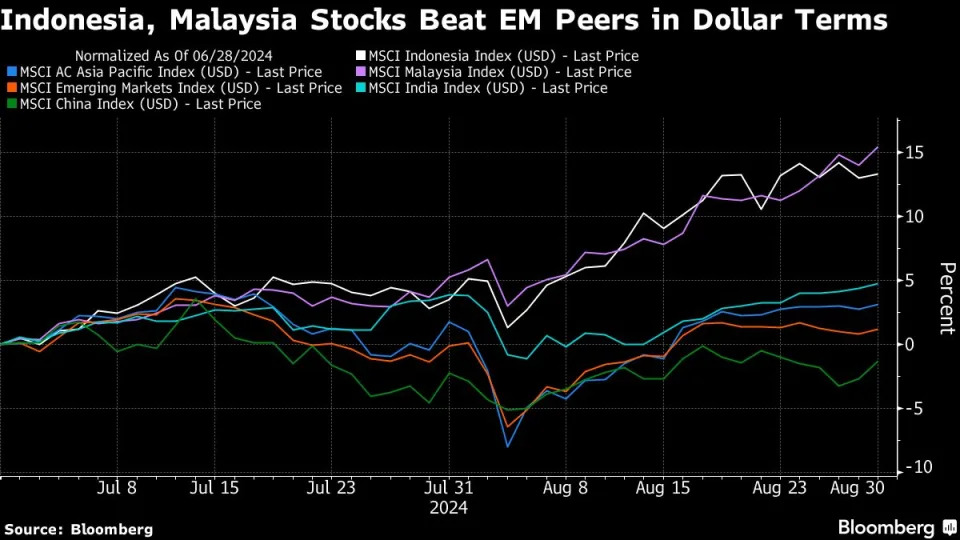(Bloomberg) -- Volatile weather and the US bird-flu outbreak are making the upcoming holiday menu more expensive as the price of coffee, cocoa and eggs soar. Meanwhile, OPEC expects oil demand to climb in 2025, driven by China, India and other Asian nations. Electricity use also is rising, with a key North American agency revising its projections significantly upward. Also revised higher is demand for coal, contrary to earlier estimates that said its use peaked last year.
Here are five notable charts to consider in global commodity markets as the week gets underway.
Commodities
This year has been a bullish one for soft commodities, with weather and supply woes fueling fears that propelled prices of coffee and cocoa higher. Precious metals also have fared well, with gold smashing records, while iron ore wallowed amid softening demand from China. Meanwhile, markets for grains and oilseeds lagged behind.
Eggs
The price of eggs is soaring in the US in the midst of the holiday baking season after 17 million egg layers and younger birds were killed since mid-October due to an intensifying bird flu outbreak. In the Midwest last week, prices topped the previous all-time high set in December 2022, according to the benchmark indicator from price-reporting service Expana. The virus has also jumped to other species including dairy cattle, impacting American milk production.
Oil
Asia is expected to drive oil demand growth in 2025, with China, India, and other countries countries from the region responsible for almost 60% of the increase. The Organization of Petroleum Exporting Countries forecasts demand to increase by 1.45 million barrels a day next year, while the International Energy Agency predicts more modest growth of 1.08 million barrels a day. Some banking analysts are becoming more optimistic about the outlook for oil next year, citing tight inventories and a positive scarcity premium in the front end.
West Texas Intermediate slid about 0.9% in New York trading Monday morning.
Electricity
Data centers for artificial intelligence are accelerating demand for electricity in the US and Canada to the fastest pace in decades. Yet, new generators aren’t coming online fast enough, prompting concern about supply, the North American Electric Reliability Corp. said in an annual assessment. Peak demand now is expected to climb by about 151 gigawatts, or 17%, through 2034, with NERC making significant upward revisions throughout its 10-year outlook. Last year, NERC estimated demand would increase by less than 10% over the forecast period.
Coal
Global coal demand is set to hit fresh records every year through at least 2027, International Energy Agency data show, overturning a previous estimate that use peaked last year and highlighting the challenges to limiting emissions that cause global warming. The latest forecast sees demand climbing to nearly 8.9 billion metric tons by 2027, about 1% higher than 2024 levels. Even with developed nations using less of the fossil fuel, ever-increasing demand elsewhere, particularly in China, means coal remains a cheap energy source, regardless of its climate impact.
--With assistance from Naureen S. Malik and Michael Hirtzer.





